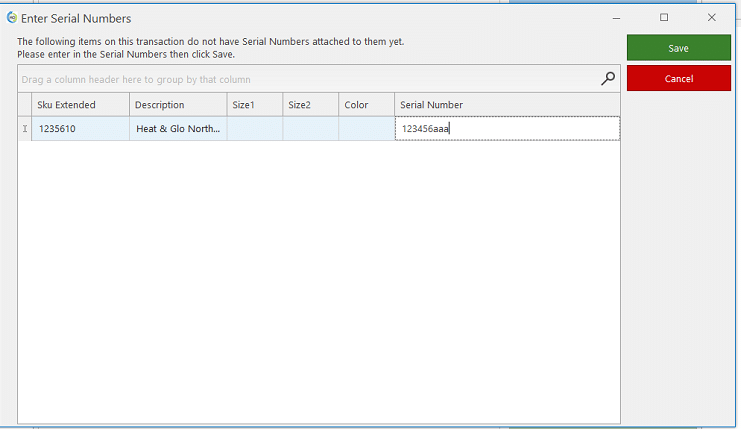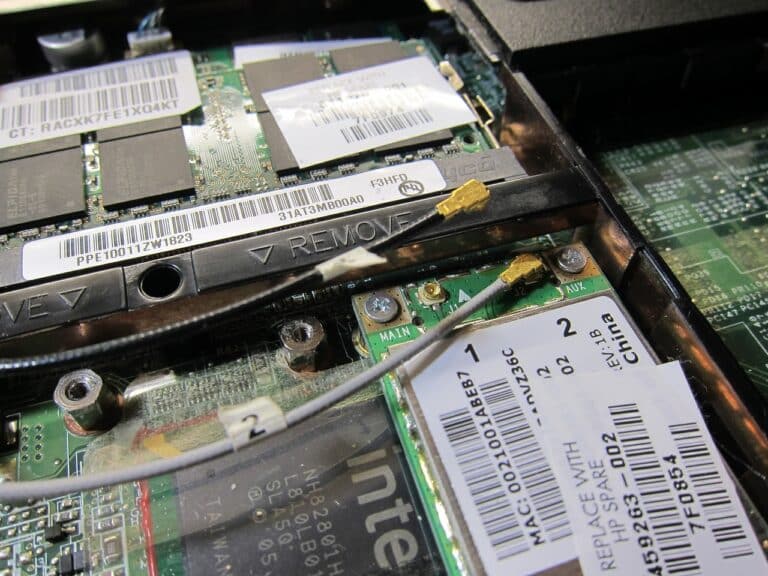Enhancing Inventory Management with POS Serial Number Tracking in Retail POS Systems
POS Serial Numbers Tracking In today’s fast-paced retail environment will enable efficient inventory management which is critical to maintaining operational success.
One key feature that significantly enhances inventory control is serial number tracking within a retail Point of Sale (POS) system.
Serial Number Tracking - What is it?
Serial number tracking is the process of assigning and managing unique identifiers for individual items in your inventory. These serial numbers allow retailers to track each product from procurement through sale, enabling complete visibility throughout the product’s lifecycle.

Benefits of Serial Number Tracking in POS Systems
POS Serial Numbers - Improved Inventory Accuracy
With serial number tracking, retailers can precisely account for each product in their inventory. This reduces discrepancies and ensures accurate stock levels.
POS Serial Numbers - Enhanced Theft Prevention
Serial numbers make it easier to trace and identify specific items, discouraging theft and improving accountability among employees and customers.
Streamlined Warranty and Returns Management
Serial numbers help retailers validate warranty claims and process returns more efficiently by identifying the original purchase details.
Sales orders and special orders can help retailers build stronger relationships with their customers. By offering customers the ability to place special orders, retailers can demonstrate that they are willing to go the extra mile to meet their needs. Sales orders can also help retailers keep track of customer information and purchase history, which can be used to personalize the customer experience.
Comprehensive Reporting
Look for advanced reporting capabilities to analyze sales trends, stock movements, and potential shrinkage.
POS Serial Numbers - User-Friendly Interface
A straightforward and intuitive interface ensures ease of use for employees and minimizes training time.
Better Supplier and Manufacturer Communication
In the event of product recalls or defects, serial number tracking allows retailers to quickly locate affected items and coordinate with suppliers or manufacturers.
Increased Customer Trust
Providing customers with serialized products enhances their confidence in the authenticity and quality of the items they purchase.
Easy reporting
Retail POS software can provide easy reporting of serial numbers. This can help retailers to track the performance of their inventory over time and make informed decisions about inventory and sales strategies.
Real-Time Tracking
Ensure the system offers real-time updates for inventory levels and sales transactions.

Best Practices for Implementing Serial Number Tracking
Standardize Procedures
Establish clear guidelines for assigning and scanning serial numbers during procurement, inventory audits, and sales transactions.
Train Staff Thoroughly
Provide comprehensive training to employees on using the serial number tracking features in your POS system.
Regular Audits
Conduct routine audits to verify the accuracy of serial numbers in your inventory and identify discrepancies promptly.
Leverage Automation
Use barcode scanners or RFID technology to streamline the tracking process and minimize human errors.
Serial Numbers on Receiving
Note down the serial numbers of items received on shipment to keep an accurate record of your inventory. Use scanning technology or manual entry to register serial numbers. This will help reconcile your inventory in the future and avoid issues from discrepancies in records.
Scan Barcodes on Fulfillment
Using a barcode scanner is crucial for accurate data input in supply chain management and inventory control. It simplifies recording information, saves time, reduces human errors and ultimately improves business efficiency.
Accurately Manage Inventory on High Valued Items
When managing high-priced inventory, it is essential to keep track of their serial numbers. Keeping track of this information can help you tremendously in managing your inventory more efficiently.
In particular, it allows you to diligently monitor the number of products you still have in stock and accurately reconcile them against sales, returns, and store transfers.
Additionally, maintaining a record of serial numbers during the point of sale, sales orders, and returns can help you verify and keep track of product movement, which in turn can lead to a smoother inventory process, better forecasting of future sales and inventory levels and therefore a healthier business.
Therefore, it is crucial to implement a system that enables the tracking of serial numbers, so that you can always have access to reliable data on your product movements, even as your business expands and inventory grows.
Book a FREE Demo Today!
Discover how RealTime POS can help you streamline your operations and improve your bottom line.
Your Demo will include a customized walkthrough of Realtime POS catered to your company’s unique needs.
